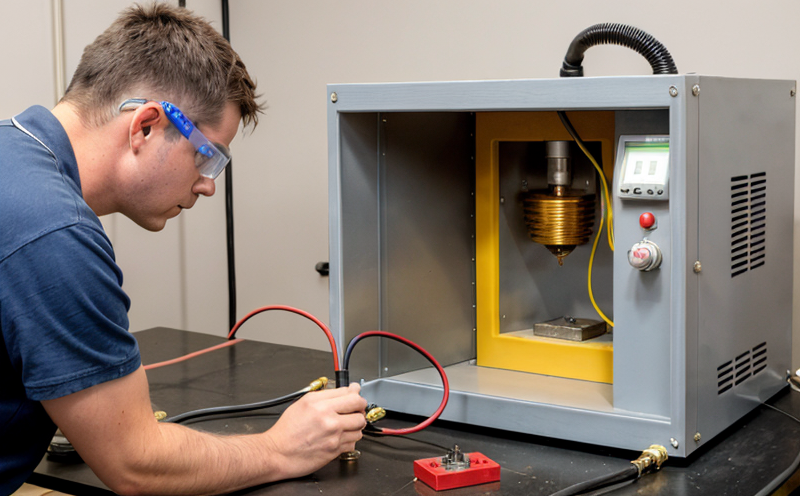ASTM B193 Resistivity of Aluminum Alloys
The ASTM B193 standard is a crucial tool in the metallurgical and materials testing sector, specifically for determining the electrical resistivity of aluminum alloys. This test is essential for ensuring that aluminum products meet specific quality standards, which is vital for industries such as aerospace, automotive, electronics, and construction.
Aluminum's unique combination of light weight, high strength-to-weight ratio, and excellent thermal and electrical conductivity makes it a preferred material in various applications. However, the resistivity of aluminum can vary based on factors like alloy composition, heat treatment conditions, and surface condition. ASTM B193 provides a standardized method to measure this property accurately.
The test involves measuring the resistance between two opposite faces of a standard specimen cut from an ingot or cast billet. The specimen is then polished and cleaned before being subjected to the resistivity measurement. This ensures that any variations in the surface condition do not affect the results. The resistivity value obtained can help quality managers, compliance officers, R&D engineers, and procurement specialists make informed decisions about material selection and process control.
The ASTM B193 method is widely recognized for its accuracy and reliability. It aligns with international standards such as ISO 6723-5:2004, providing a robust framework for testing and quality assurance in the metallurgical industry. This standard ensures that all parties involved have consistent and comparable results.
The test procedure involves several steps:
- Selection of the appropriate specimen type based on the alloy being tested.
- Precision cutting to ensure the correct dimensions as specified in ASTM B193.
- Polishing and cleaning the specimen surface to a high standard.
- Measuring the resistance between two opposite faces of the specimen using a suitable electrical resistivity tester.
| Step | Description |
|---|---|
| Selecting the Specimen | The specimen should be cut from an ingot or cast billet to ensure a representative sample. |
| Cutting Precision | Ensure that the dimensions of the specimen are in strict accordance with ASTM B193 specifications. |
| Surface Preparation | The surface should be polished and cleaned to remove any contaminants or imperfections. |
| Electrical Resistance Measurement | The resistance between two opposite faces of the specimen is measured using a suitable tester. |
Scope and Methodology
The ASTM B193 standard provides detailed guidelines for determining the electrical resistivity of aluminum alloys. The scope covers a wide range of aluminum alloys, including wrought and cast types.
The method involves preparing specimens according to the specified dimensions in the standard. These specimens are then polished and cleaned before being measured using an electrical resistivity tester. The resistance between two opposite faces of the specimen is calculated based on the dimensions and material properties provided by ASTM B193.
Benefits
The primary benefit of ASTM B193 testing lies in its ability to provide reliable, standardized data that ensures compliance with industry standards. This helps manufacturers and suppliers meet the quality requirements set by clients and regulatory bodies.
For aerospace companies, accurate resistivity measurements ensure that aluminum parts perform optimally under high-stress conditions. In automotive applications, this test can help identify materials suitable for lightweighting without compromising structural integrity or electrical performance.
The testing also aids in R&D by providing insights into how changes in alloy composition and heat treatment affect the material's resistivity. This information is crucial for developing new alloys with improved properties tailored to specific applications.
Competitive Advantage and Market Impact
- Precision: ASTM B193 ensures that all measurements are conducted under controlled conditions, leading to consistent results across different laboratories and suppliers.
- Regulatory Compliance: By adhering to this standard, businesses can demonstrate compliance with international regulations and industry standards.
- Quality Assurance: Reliable data from ASTM B193 helps maintain high-quality products that meet the expectations of customers and stakeholders.
- Competitive Edge: Providing accurate resistivity information can be a key differentiator in competitive markets, helping to win contracts and gain market share.





